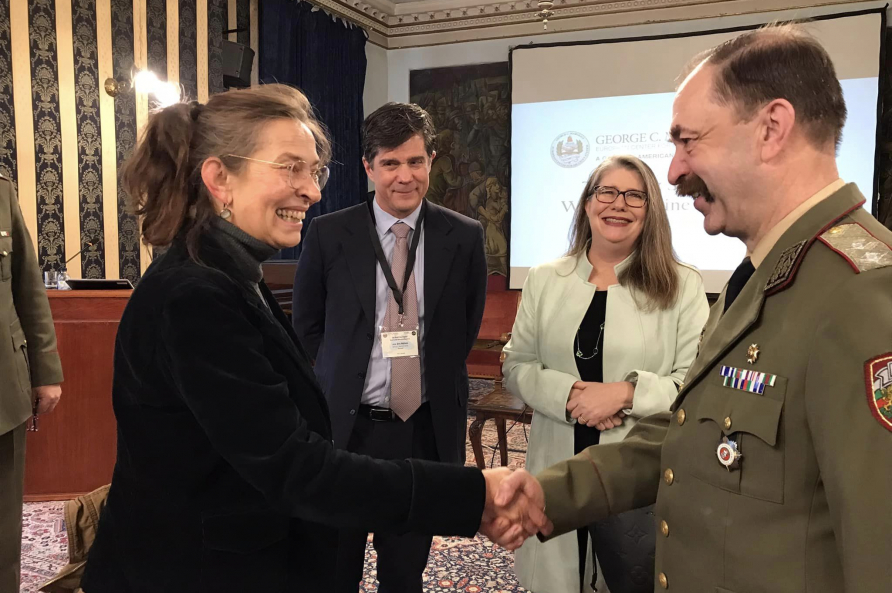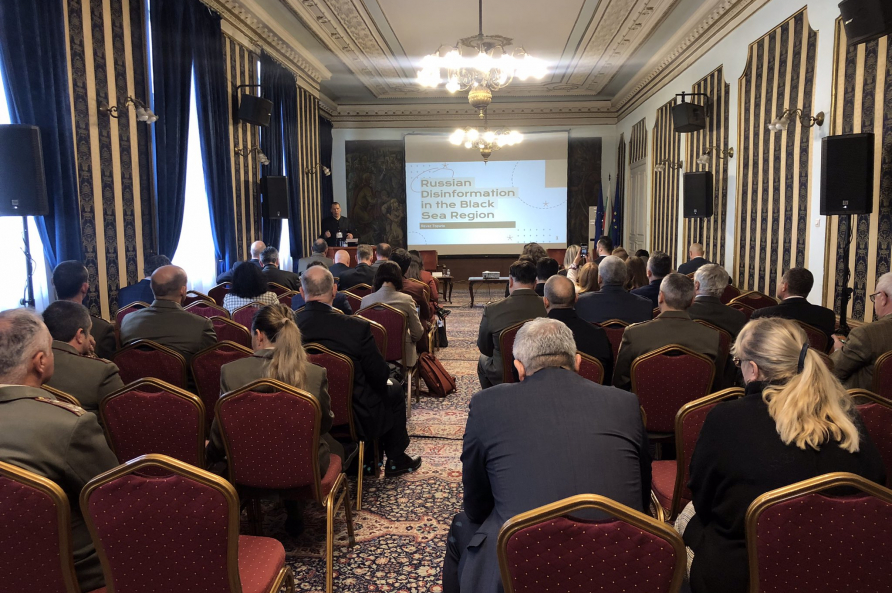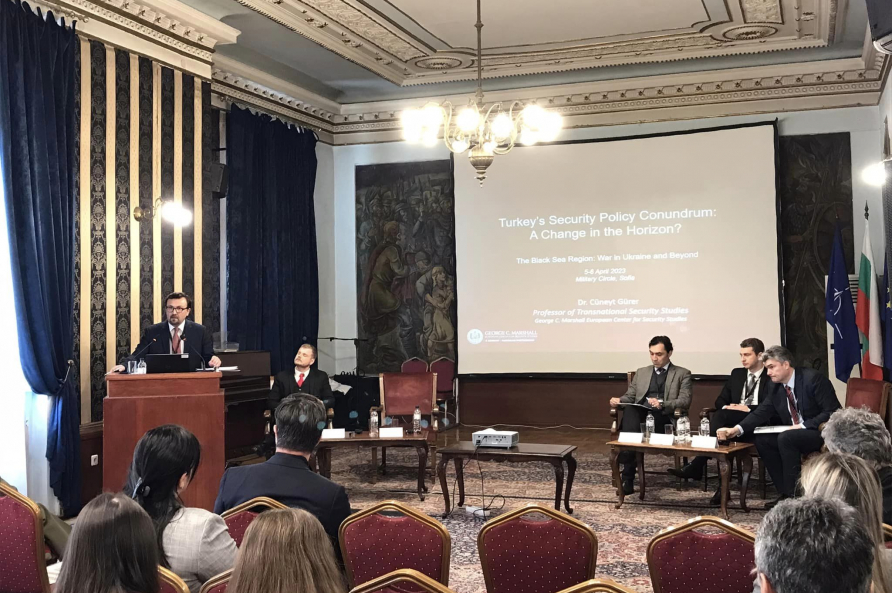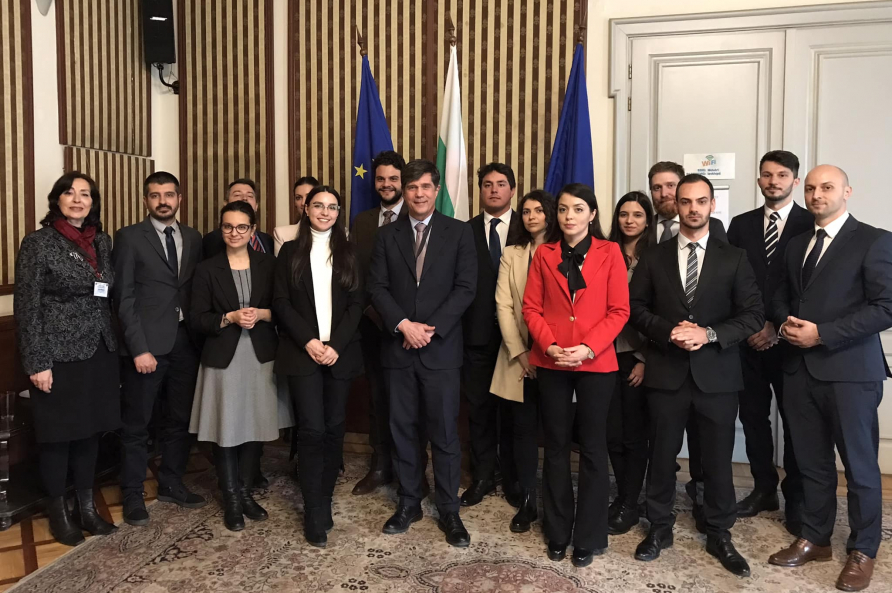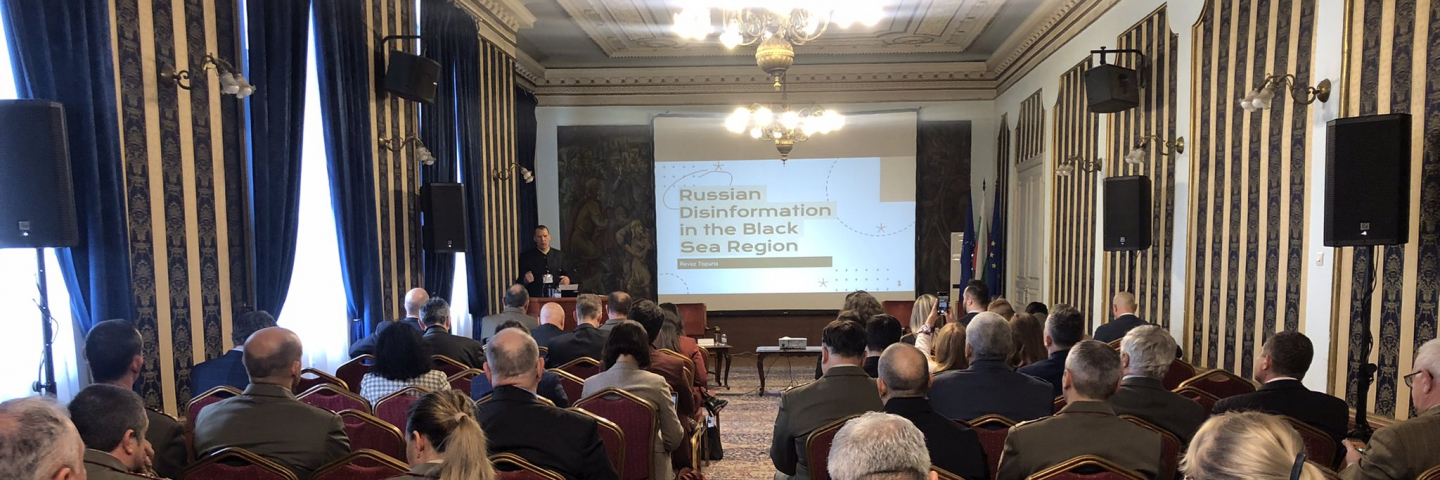
Assessing Impacts of Russia’s Invasion of Ukraine in the Black Sea Region
The George C. Marshall European Center for Security Studies wrapped up a two-day forum focused on the topic “The Black Sea Region: War in Ukraine and Beyond” assessing the impact of Russia’s illegal invasion of Ukraine on the countries of the Black Sea region. The event, hosted at the Rakovski National Defence College in Sofia, Bulgaria, brought together approximately 50 experts from over 10 countries, April 5-6.
“We appreciate the cooperation with the George C. Marshall Center on this event as we address key security and economic issues affecting the Black Sea region as a result of Russia’s aggression in Ukraine,” said Maj. Gen. Todor Dotchev, Commandant of the Rakovski National Defence College, and an alum of the Marshall Center.
The event covered issues like the Euro-Atlantic response to the war in Ukraine, security and economic impact in the countries of the Black Sea region, hybrid threats and societal resilience.
“It is difficult to speculate on the outcome of the war in Ukraine. However, it is essential to always keep in mind the desired end-state: collective defense and deterrence,” said Ambassador Eric Nelson, Associate Director of the Marshall Center. “With Finland joining NATO, we are 31 strong, and have taken yet another step to enhancing our common security.”
Expert presentations highlighted recurring themes and/or desired end-states that were cross-cutting in most discussions:
- Ukraine support must continue until they win the war.
- Conditions for peace must be created in order to make any further aggression impossible.
- Collective defense and deterrence are the only ways to avoid future negative impacts of such conflicts in the Black Sea region and beyond.
Expert analysis on the consequences of failing to secure a Ukraine win make the future harder to predict. A war of attrition or a protracted conflict would only add to the current list of countries held hostage by Russia in frozen conflicts.
“In a way, the choice seems to be clear—we must support Ukraine [to] win the war—for as long as it takes. The Euro-Atlantic response was strong, but we must do better. Putin will not likely give up, so NATO will have to step up,” said one of the experts.
While there is always a potential for escalation of the conflict, this has proven to be mostly a Russian threat narrative, rather than a largely executed reality. Russia has been losing ground on the strategic narrative and turning to tactical narratives in the hopes of claiming quick wins.
Although, as Marshall Center expert Graeme Herd, put it, “hybrid war and nuclear blackmail is a constant now and will remain going forward in Russian foreign and security policy.”
On the question of solutions for the Black Sea region to address the impacts of the war in Ukraine, participants highlighted a few key takeaways.
“There is a need to develop a strategy for the Black Sea region, backed by policy. While countries in this region have different positions and calculations towards Russia’s aggression in Ukraine, they all realize that the region needs a new security understanding and common strategy,” said Cüneyt Gürer, professor of Transnational Security Studies at the Marshall Center.
Additionally, efforts must be made to avoid frozen conflicts since they increase the likelihood of instability and the risk of escalation. More comprehensive policy alternatives should be considered to be prepared for alternative scenarios.
As Pal Dunay, subject matter expert and professor at the Marshall Center caveated, “we must, ultimately, continue unity of support to Ukraine as an essential element to compensate for asymmetries.”
Participants agreed that when it comes to collective security as the new underlying priority, countries in the region will have to revise policies and priorities to establish mechanisms of defense and social resilience. Further emphasis was placed on the need to enhance coordination between the U.S., EU and NATO with the countries of the Black Sea region to boost defense capabilities of the littoral states and increase intelligence sharing.
In a panel moderated by Marshall Center professor James Derleth, they addressed hybrid challenges and ways to build societal resilience.
“There is a difference between how strategic competitors like Russia and China employ hybrid activities and how the West approaches this issue. There is a need for us to further enhance our capabilities to counter hybrid threats,” said Derleth.
Marshall Center professor Matthew Rhodes concluded the forum with lessons learned from the panel discussions on the impact the war in Ukraine has had, not only on the Black Sea region but also on the international system.
“What will be important is that we look at how we include what we have learned over these two days in the primary approach to international studies and how we need to change the teaching of international relations,” he said.
The event was attended by the German Ambassador to Bulgaria, Irene Maria Plank, and the U.S. Charge d ’Affairs in Bulgaria, Andrea Brouillette-Rodriguez.
